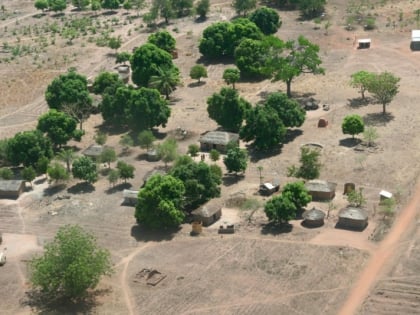Mbaiki


Facts and practical information
Mbaiki, situated in the verdant heart of the Central African Republic's Lobaye prefecture, is a city that offers a unique glimpse into the cultural and natural richness of this often-overlooked region of Africa. With its proximity to the equator and nestled within the Congo Basin, Mbaiki is surrounded by some of the most diverse and dense rainforests in the world, making it a hub for eco-tourism and research.
The city itself, though modest in size, serves as a vibrant center of local commerce and culture for the surrounding communities. The bustling marketplaces of Mbaiki are a testament to the region's agricultural wealth, offering an array of local produce such as coffee, cassava, and bananas. Visitors have the opportunity to immerse themselves in the local economy and experience the flavors of the region through its fresh, organically grown foods.
Mbaiki is also known for its involvement in the timber industry, with the surrounding forests being a source of tropical hardwoods. However, in recent years there has been a growing emphasis on sustainable practices and conservation efforts to protect the area's biodiversity.
Cultural heritage in Mbaiki is rich and varied, with the city being home to a number of ethnic groups, including the Yakoma, Mbaka, and Bantu peoples. This melting pot of cultures is reflected in the city's art, music, and festivals, which celebrate the traditions and beliefs of these communities.
For those interested in ecotourism, the Dzanga-Sangha Special Reserve, though further afield, is accessible from Mbaiki and provides a sanctuary for a variety of wildlife, including forest elephants, western lowland gorillas, and bongo antelopes. The reserve's efforts in conservation and community-based tourism offer a responsible way to experience the wonders of the Central African wilderness.
Lobaye
